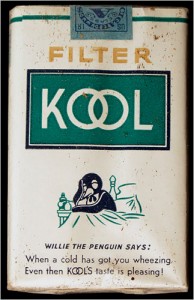Menthol is commonly used in pharmaceuticals, such as cough drops, to reduce irritation in the respiratory system. It is often included in cigarettes as well, but this addition has worrying effects. Menthol suppresses feelings of irritation without mitigating the long-term negative health consequences of nicotine and tobacco. Without it, the experience of smoking a cigarette might not be as enjoyable, which could be a good way to prevent new smokers from becoming addicted. Legislatures in Brazil and the European Union have banned the sale of cigarettes with menthol, and the American Food and Drug Administration (FDA) has requested that more research be done on the subject. Scientists from Yale, the University of Connecticut, and Duke University have provided some new information on this topic through a study of mice and menthol.

Published in a February edition of the journal PLOS ONE, the team investigated menthol’s effects on mice in contact with cigarette smoke. Two groups of mice were exposed to smoke, with one group also breathing L-menthol vapor, the polymer added in cigarettes. The mice were lightly restrained so that — if necessary — they could remove themselves from the smoke, and the few that did were excluded from the data. In examining the mice that remained, the researchers determined that menthol leads to a greater inhalation of smoke.
Using EMKA software, the team, which included Yale professors Lu Fan and Yi-Shiuan Liu, looked for moments of braking during respiration. Braking occurs when normal breathing is interrupted and slowed — and it happens more often in the presence of cigarette smoke. “The L-menthol normalized breathing patterns and suppressed the irritation response,” said Sven Jordt, an author on the paper from the Department of Anesthesiology at Duke. The mice in contact with menthol also had higher levels of cotinine and nicotine in their blood, signaling that the lack of irritation led the mice to inhale more smoke.
However, Jordt warned against drawing definitive conclusions about human smoking from the study. Humans and mice show significant differences between their respiratory systems, and similar studies have yet to be replicated with humans. Nonetheless, the study draws attention to the dangerous effects menthol can have when it masks the natural warning signs associated with smoking.
